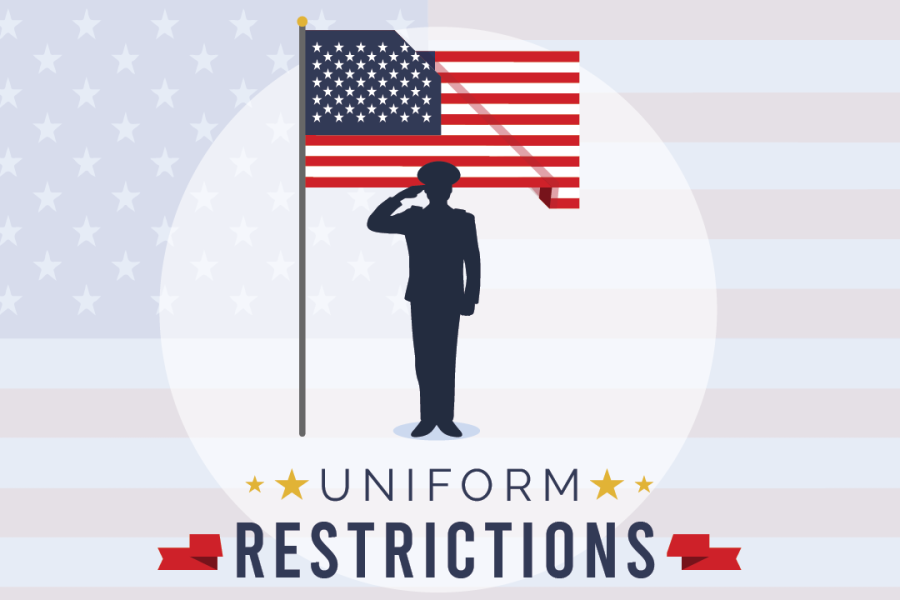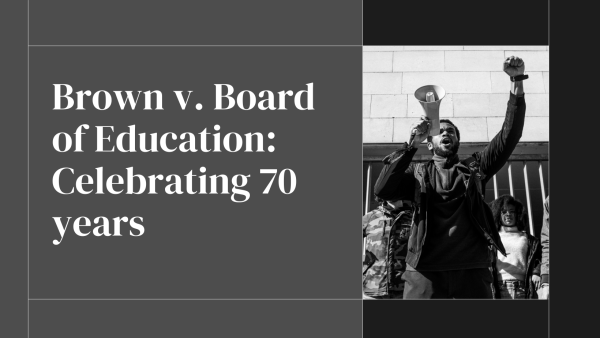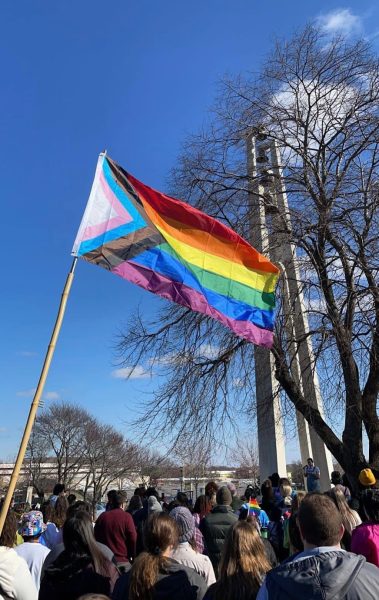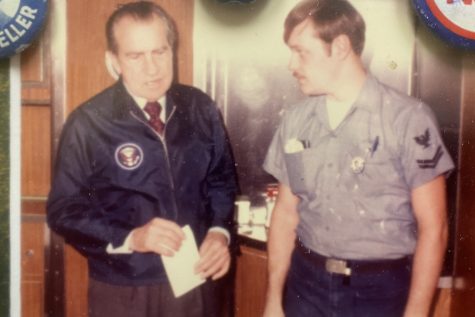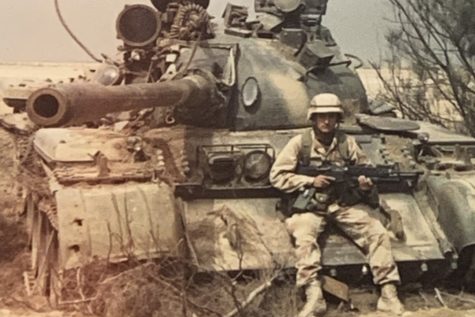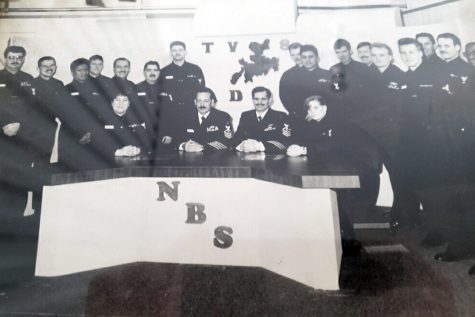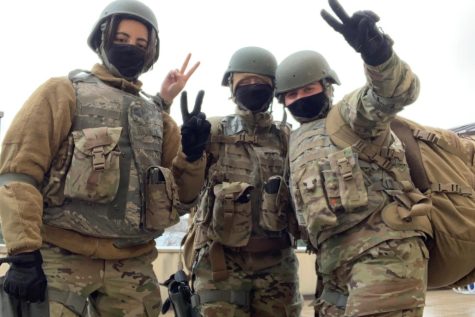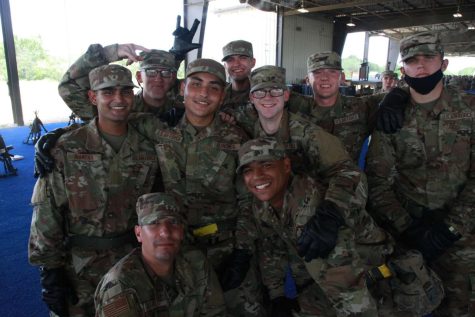Veterans recall military restrictions while in uniform
Military personnel have a code of conduct while in uniform. Terry Ralston and Chris Bowers reflected on their time in the military and what effect these restrictions had on them.
Washburn was the first university in the state of Kansas to earn the title of Purple Heart University because of its recognition and service to members of the military. Many veterans find their way to this military-friendly university carrying stories, including what actions cannot be taken while in uniform.
After spending six years in the Navy and 18 years in the Army, Terry Ralston, a retired Staff Sergeant E-6, will graduate this semester with a Bachelors of Arts degree in Mass Media with an emphasis in public relations. While he is full of witty responses, some of this behavior would not be acceptable by military standards.
“I didn’t have the right to speak to anybody about anything,” Ralston said. “If you’re not a public information officer, you can’t talk to the press. If I’m just standing along the beach in a pair of board shorts and a tank top, I can say whatever I want. But as soon as I identify myself as Navy and I go against the grain, I could get in big trouble.”
Ralston recalled being on duty and witnessing a jet crash into some mountains northeast of the base he was stationed at.
“I was sitting there, heard a boom, kind of looked out the guard shack and saw a puff of smoke and two parachutes,” Ralston said. “But because I’m not PIO, I can’t say what I saw. Yeah, I had to write my statement and give it to my superiors, but I wasn’t allowed to report it myself.”
Being restricted when interacting with reporters is one limitation military personnel have to learn early. Chris Bowers retired from the U.S. Army in 2010 after his third enlistment and is the Military Transitions Coordinator for the Student Success Center in Mabee Library. A double major himself, Bowers gets to be the first person all new veteran students talk to when applying to Washburn.
“We have pretty close to two separate lives,” Bowers said. “Because you wear a uniform, and there’s a rank structure, you gotta be really, really careful on how you present things to superiors. I couldn’t just go in uniform and protest.”
Bowers remembers when he had an interaction with the chain of command during his time in the military.
“So, one of the guys I served with had a green card and we didn’t know it. We thought he was an American citizen,” Bowers said. “We thought the world of each other, and like fools, we wrote a letter to the commander in chief that said that any citizens or soldiers who defend the United States should be given the right to decide if they want an automatic citizenship. We put it in the mail, not thinking twice about it.”
At the time, Bowers and his friends sent a letter to the President of the United States addressed from Iraq. After officials opened the letter, Bowers got a call from superiors informing him that there was a proper chain of command that needed to be followed.
“Yeah, we got to see some folks,” Bowers said. “You just don’t write the commander in chief, the president of the United States.”
Other freedoms civilians enjoy are restricted for those in military uniform. Public displays of affection to a partner, holding hands or keeping hands in pockets are not accepted. Eating or drinking while walking is also not allowed while in uniform.
“You can’t use the uniform for gain,” Ralston said. “You can’t do political rallies or fundraisers unless it’s specifically benefiting the country. You can’t bring in your own feelings or political views. You can’t go against the military, against the government or against morals you’ve sworn an oath to keep.”
Bowers explains that no superior expects someone to follow an unlawful order or do something illegal or criminal, but rather that they be smart with their word choice and how they talk with others.
“I was pretty outspoken back then, especially when I thought something was wrong,” Bowers said. “But I always used a lot of tact. I was careful how I worded what I was saying.”
Ralston wants others – whether they have a military background or not – to speak up if they feel they need to.
“Don’t be afraid to talk,” Ralston said. “Voice your opinions and allow others to do the same. Even if they don’t agree with you, be respectful, be polite, shake hands and move on.”
While military personnel are limited in the actions they take while representing the United States in uniform, they are also trusted to keep military secrets while in civilian attire.
Edited by: Rakesh Swarnakar, LeSha’ Davis
Your donation will support the student journalists of Washburn University. Your contribution will allow us to purchase equipment and cover our annual website hosting costs.




